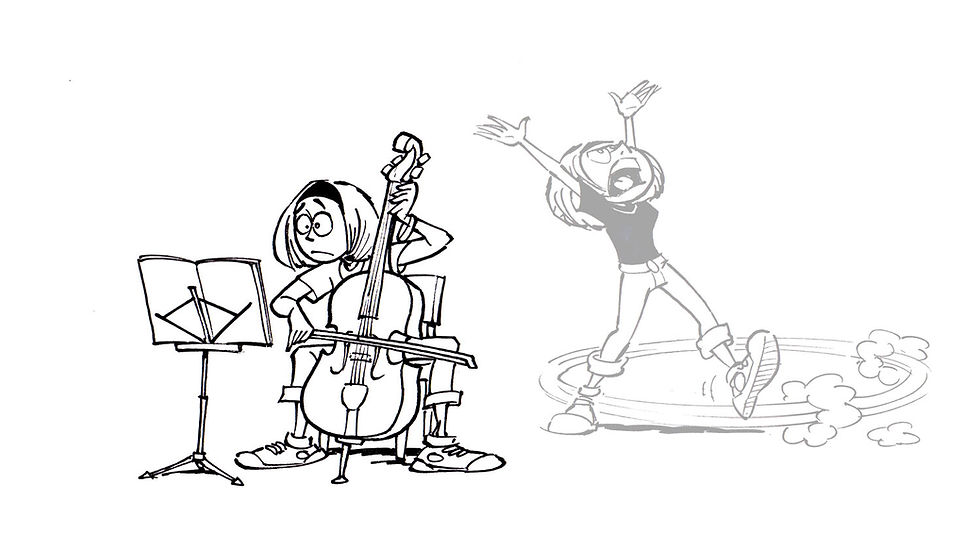Performance anxiety: being stuck and how to unlock it
- Charlotte Tomlinson

- Apr 15, 2020
- 2 min read
Updated: Oct 26, 2023
Performance anxiety: being stuck and how to unlock it
I’ve been working with a musician recently who has been struggling with performance nerves to the extent that he finds auditions for professional orchestras very challenging and never feels he does his best. We have discovered over the last few weeks that the root of the problem is an over active Inner Critic. What happens is that he will start practising and beat himself up at any point when he feels he’s not playing well enough. Then he will tense up, making it extremely difficult for him to play well and this is followed by a less than satisfactory play through which then leads him to beat himself up all over again. It goes around and around in a vicious cycle.
It’s so easy to get stuck in this way, but how do we get out of it? With this particular musician, we approached it in a few different ways. The first step was to get him to notice every time he beat himself up, and instead of pushing through, to stop, take a deep breath, and be kind to himself in that moment. This is what I call in my book: Pause, Breathe, Kind Eyes. It takes a certain type of focus to stop in the middle of a phrase and do this, but it really does help build these new ways in.
The step after Pause, Breathe, Kind Eyes, is to bring in the Objective Observer as our practising companion. The Objective Observer practises by being non-judgmental and non-emotional. By learning in this way, we’re giving ourselves a much greater chance of playing well and freely in any performance, and dramatically reducing our nerves.
Allowing mistakes
So many of us tense up because we don’t want to make mistakes - of course we don’t but tensing up to prevent mistakes often means we make more of them. When we give ourselves permission to make a mess as part of the learning process, we take the pressure off, free up and often make fewer mistakes.
Exaggerating
Exaggerating is another way of getting us out of being stuck. When our main goal is to ‘get it right’ the pressure continues to build, and we find ourselves focusing on that rather than how we express the music. One way to unlock this is by exaggerating the expression that we want to come through the music, almost as a caricature. By allowing ourselves to be ‘silly’ we can often find exactly what we were looking for all along!






Comments